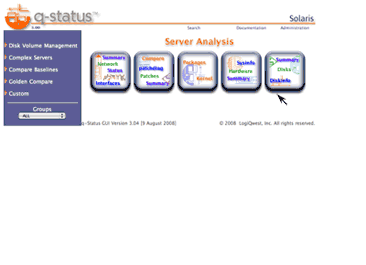| Step |
Action |
Description |
| 1a |
# /usr/sbin/poolbind -p <pool name> -i zoneid <zone name or list> |
 |
Use /usr/sbin/poolbind to temporarily bind an exising pool to a zone.
global# poolbind -p work1-pool -i zoneid workzone1
|
| Notes: |
- Each zoneid can be specified as either a zone name or a numerical zone ID from the zone list generated by /usr/sbin/zoneadm list -vi on the global zone.
- Multiple list zone ids or names can be specified after the zoneid parameter an will bind the list to that single pool.
- zoneid can be a zone name or its zone ID number from /usr/sbin/zoneadm list -vi output.
- A bind created by using poolbind will disappear if the global zone is rebooted.
- The resource pool will not take affect until the zone is rebooted.
|
|
| or |
| 1b |
# zonecfg -z <zone name>
zonecfg:workzone1> set pool=<pool name>
zonecfg:workzone1> verify
zonecfg:workzone1> exit |
| |
Use /usr/sbin/zonecfg to permanently assoiciate an exiting pool to an existing zone using the set pool option.
global# zonecfg -z workzone3
zonecfg:workzone1> set pool=work3-pool
zonecfg:workzone1> verify
zonecfg:workzone1> exit
global#
|
Verify the zone configuration has been updated by using zonecfg -z <zonename> info. This will display the updated configuration with the pool assignment displayed.
global# zonecfg -z workzone3 info
zonepath: /zones/workzone3
autoboot: true
pool: work3-pool
inherit-pkg-dir:
dir: /lib
inherit-pkg-dir:
dir: /platform
inherit-pkg-dir:
dir: /sbin
inherit-pkg-dir:
dir: /usr
inherit-pkg-dir:
dir: /opt/sfw
net:
address: 192.168.3.44/24
physical: bge0
global#
|
|
| 2 |
Reboot Zones |
Use zoneadm with the reboot option to reboot the zone for the new pool to take affect. |
| # zoneadm -z <zone name> reboot |
| |
global# zoneadm -z workzone1 reboot
global#
global# zonecfg -z workzone2 reboot
global#
global# zonecfg -z workzone3 reboot
global#
global# zonecfg -z workzone4 reboot
global#
|
|
